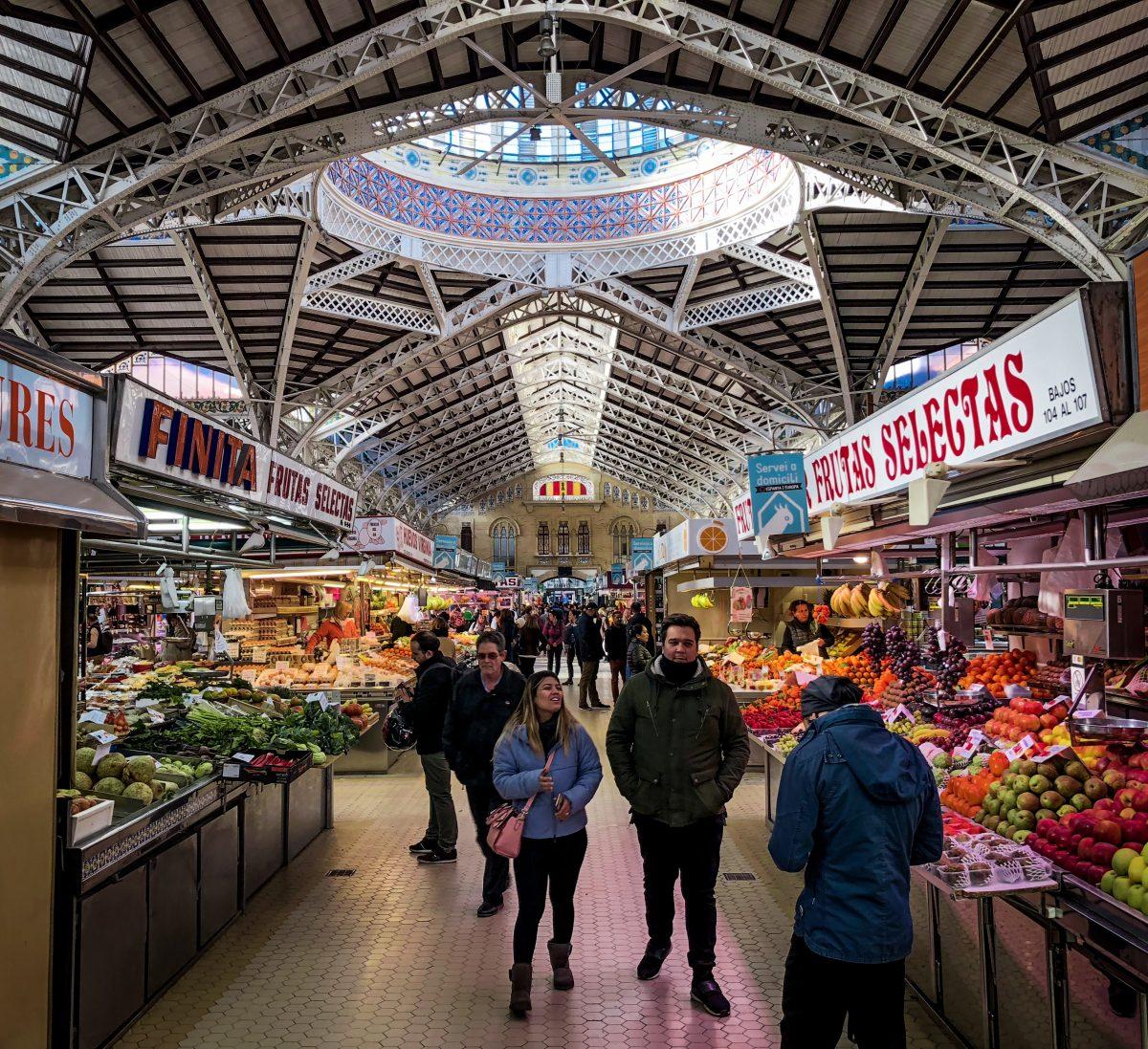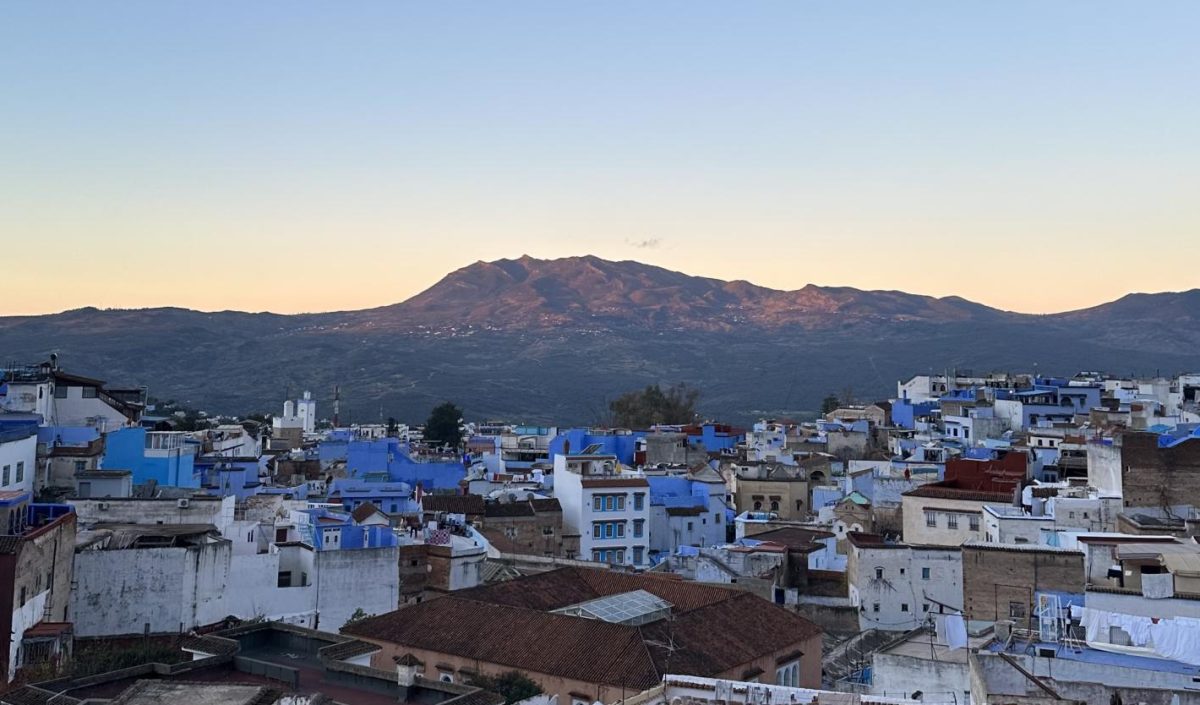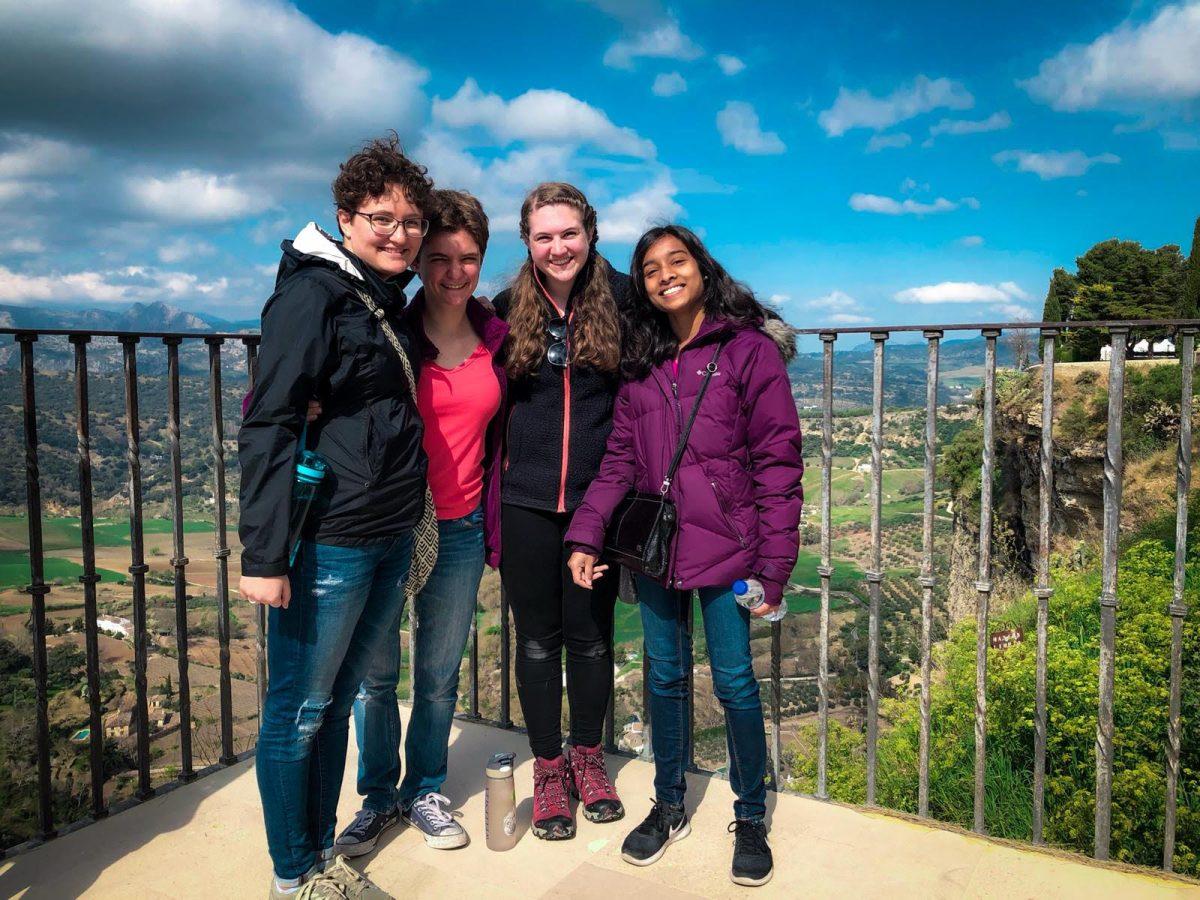For the first time in my life, I feel homesick. Until now, I had avoided all of the negative side effects of moving away from home. Missing my bed? It’s getting old anyway. Missing creaks from my attic? The ghosts won’t notice I’m gone. Missing my parents? We’re not a particularly affectionate family.
Feeling homesick is longing for the sense of familiarity and belonging that comes with “home.” It’s wishing for the comfort of recognizing community faces and colloquial phrases.
If I can find those comforts in a new place, I am not plagued with wishing for the old one. And I have. Wellesley has become, more than any other place, my home.
This year, I am away from home.
My spring semester at the University of Córdoba in Andalusia, Spain, counting toward my Spanish major, has just begun. Last semester, I studied at the University of St Andrews in Fife, Scotland, for my English major There are, of course, large cultural differences in both countries that I bring up when vague acquaintances in the States ask me “What’s it like over there?”
But the small things make up “home.” And the change in the small things is what makes me homesick.
One night in Scotland, about mid-semester, my St Andrews Big – given to me by the university’s abroad office – invited me and a handful of her other UK friends to her house strictly because she had a great excess of various chips and dips that needed to be eaten up.
When the dips had been finished off and we were left munching on the crumbs of chips, someone pulled out a set of cards for Codenames, a word-association game. During the game, each team is given clues as to which words in the set they should choose.
My team’s clue was “Teeth: 3.” We chose the words “dentist” and “paste” unanimously. For the third word to fit the clue, my team wanted to select “crown.” I, however, was leaning toward “braces.” I suffered through orthodontics for five years. I thought, if anyone knew the correlation between braces and teeth, it would be me.
But the team outvoted me, selected “crown,” and won the round. “Why,” I asked, “was it not ‘braces’?” They looked at me in disbelief, a few laughing. A girl mimed pulling at suspenders with her thumbs and asked, “Braces? For teeth?”
Just a few days ago, I finished off the box of cornflakes at breakfast. My Spanish host mom asked me what kind of cereal I would like her to buy since the cornflakes were just what she had in the house when I arrived.
I perked up and said, “Honey Nut Cheerios!” She looked at me, puzzled. “Cheerios?” I asked, making the shape of a Cheerio with my hand. I mean, come on, they’re Cheerios! Everyone knows what Cheerios are! So I described them to my host mom.
The next day, I found in the pantry a different type of puffed-grain cereal with honey. As grateful as I was, I accompanied a friend to the grocery store to see for myself if Cheerios even exist in this part of the universe. They appear not to. I was baffled. (They’re Cheerios! I thought again.) Admittedly, though, I would be hard pressed to find Spain’s five-liter jugs of olive oil in a grocery store the United States.
Study Abroad Orientations gave me an overview of the food and the weather and the academic systems in the countries I am visiting this year. Studying abroad, on the other hand, has allowed me to discover the small details that make these countries “home” for their people.
In the back of my mind, I am aware that not everyone in the world thinks, eats or speaks like I do. Further back in my mind, I am aware that some of my opinions, cuisine and words make absolutely no sense to others.
Yet, I have always been so focused on ensuring my own comfort in my surroundings, that I doubt I have ever really been aware of someone else’s discomfort toward a phrase or custom familiar to myself. My time abroad has helped me to realize that I need to be conscious when referring to Cheerios, or using simple words like “braces,” and assuming that I am understood simply because they are, to me, mundane aspects of life.
They are, assuredly, parts of my concept of “home.” But that does not mean they are “home” to a person who has yet to encounter them.
Wellesley is my home. The homesickness I feel this year is a longing for a bubble in which I am familiar with the slang, the off-brand names of well-loved cereals, the ghosts in the radiators and the reliably rock-hard mattresses.
However, I now understand that not all of the details of the bubble that I love make the bubble feel like home for new students. When I return, I will make an effort to share the details with those who are struggling to make Wellesley their home. That could be as simple as defining acronyms (BHE, SHE, MHE, TCO, TZE, BOW, et. al.) and explaining ice cream flavors (Graham Central Station does not exactly sound like ice cream).
Curing my homesickness while abroad is my job. Curing the homesickness of other siblings in our home can be a job we all share.










Amanda Stone | Aug 14, 2020 at 7:07 am
I know what you mean. This feeling is familiar to many students. When you find yourself in a completely new place, away from your family and everything you’re used to, it’s baffling. And not everyone is ready to be open to new experiences. It’s how homesickness comes about. I went through it myself, first at university for the first semester and then six months in another country. It was very difficult. And I guess it won’t be easy to say goodbye to the university when I graduate. Is there such a thing as longing for university?
This is great! I think supporting each other is the best way to overcome homesickness. I would also like to add to your article an Infographic about homesickness, which illustrates symptoms and causes: https://newsgoldmine.com/how-to-survive-when-you-study-away-from-home/ I think it’ s a good one. It has helped me a lot with my problems, and I think it will help many other students who are not yet ready to leave their comfort zone.